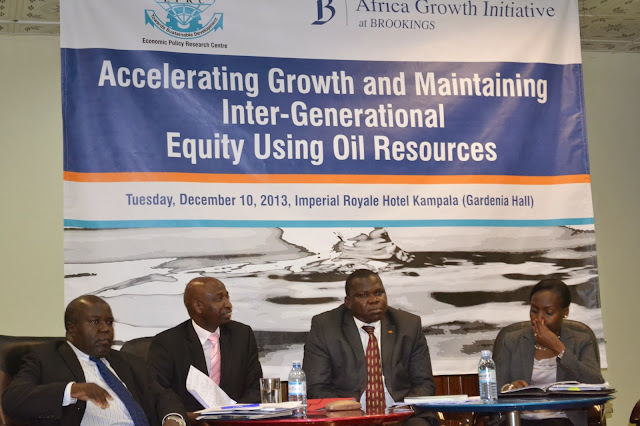EPRC raises the level of oil discussions in Uganda

By Esther Nakkazi Ministry of Energy and Mineral Development officials have commended the Economic Policy Research Centre (EPRC) for the research on oil for intergenerational equity. They say EPRC researchers have raised the level of discussion in the oil and gas sector taking adequate stock of what has been done and giving a positive look at what will happen. The research is in a published paper entitled ‘Accelerating Growth and maintaining Intergenerational Equity using oil resources in Uganda,’ presented in Kampala on 10th December 2013 by Lawrence Bategeka, a senior Research Fellow at EPRC and Joseph Mawejje a Research Analyst at EPRC. The paper suggests things Uganda should do right to avoid the natural resource curse and to ensure that the benefits from oil accrue equally to the current as well as future generations. “It is good to have the academicians and researchers talking about oil. The country can now have an engagement between the people who know and...






